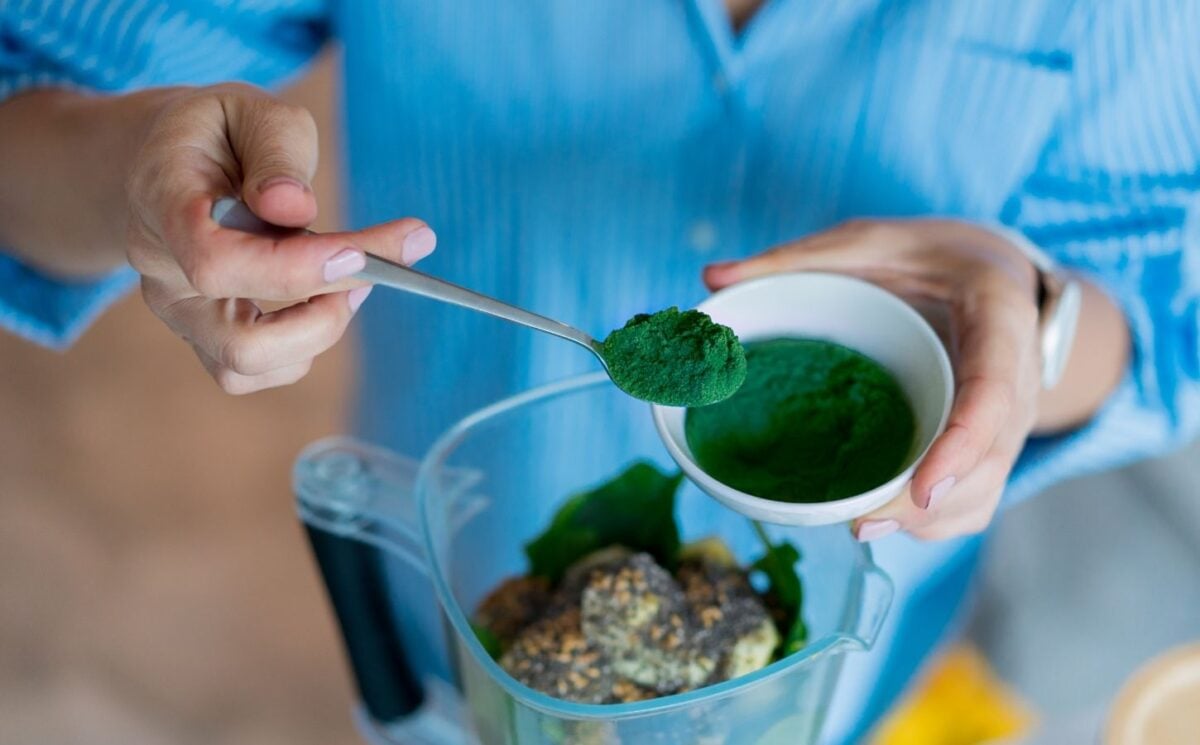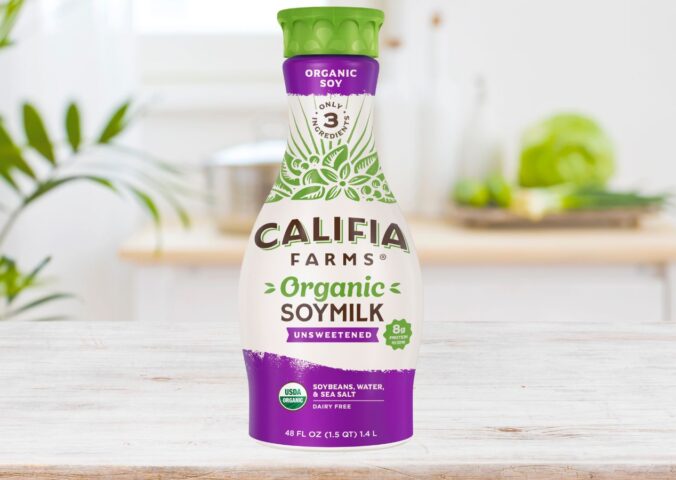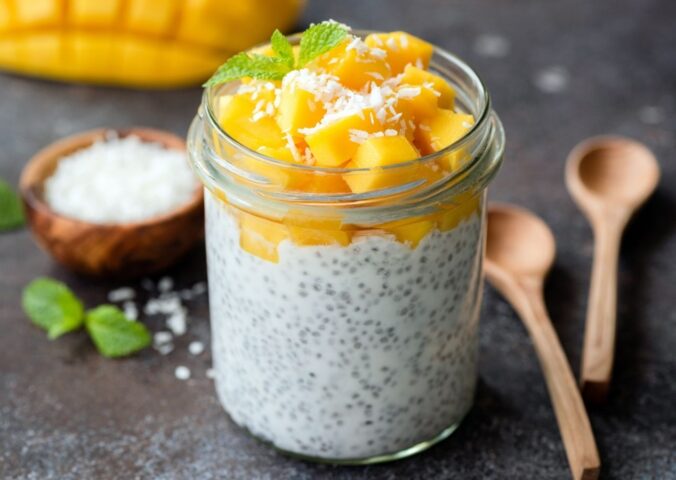Spirulina is having a moment. The blue-green algae, or cyanobacteria, is a nutritious and versatile foodstuff with a unique flavor and zero animal ingredients.
Read more: New Cultivated Spirulina Has Comparable B12 To Beef
Spirulina has been sold as a supplement in the US since the 1970s, but the vegan ingredient has been consumed in other parts of the world for centuries.
Here’s everything you need to know.
What is spirulina?
Modern consumers are most likely familiar with spirulina in the form of capsules, tablets, and powders. Dried and powdered spirulina, for example, is often mixed into pre-prepared blended greens, fresh juices and smoothies, and energy or protein bars. It’s been used this way for over 50 years but is enjoying a particular uptick in popularity in 2024.
The brightly colored organism also happens to be the world’s oldest living plant. At approximately 3.6 billion years old, spirulina and its fellow blue-green algae are sometimes referred to as the “evolutionary bridge” between green plants and organisms like bacteria, and can thrive even in inhospitable environments.
Humans have been eating ancient, nutritious spirulina for a long time. Indigenous cultures in Africa and Central America have used the algae as a staple food for centuries, and spirulina is still widely enjoyed today in traditional Mexican dishes like tlayudas and tortillas.
Spirulina grows naturally in Mexico, as well as throughout Eastern Africa, Western Africa, and Asia. China is the single largest commercial producer of spirulina today, and the algae flourish in warm ponds, rivers, and alkaline lakes throughout the tropics and subtropics.
Spirulina requires just water, CO2, and sunlight to thrive. It produces its own food via photosynthesis and supplements this with essential minerals from water, making it a productive, resource-efficient, cost-effective, and sustainable food source.
What does spirulina taste like?
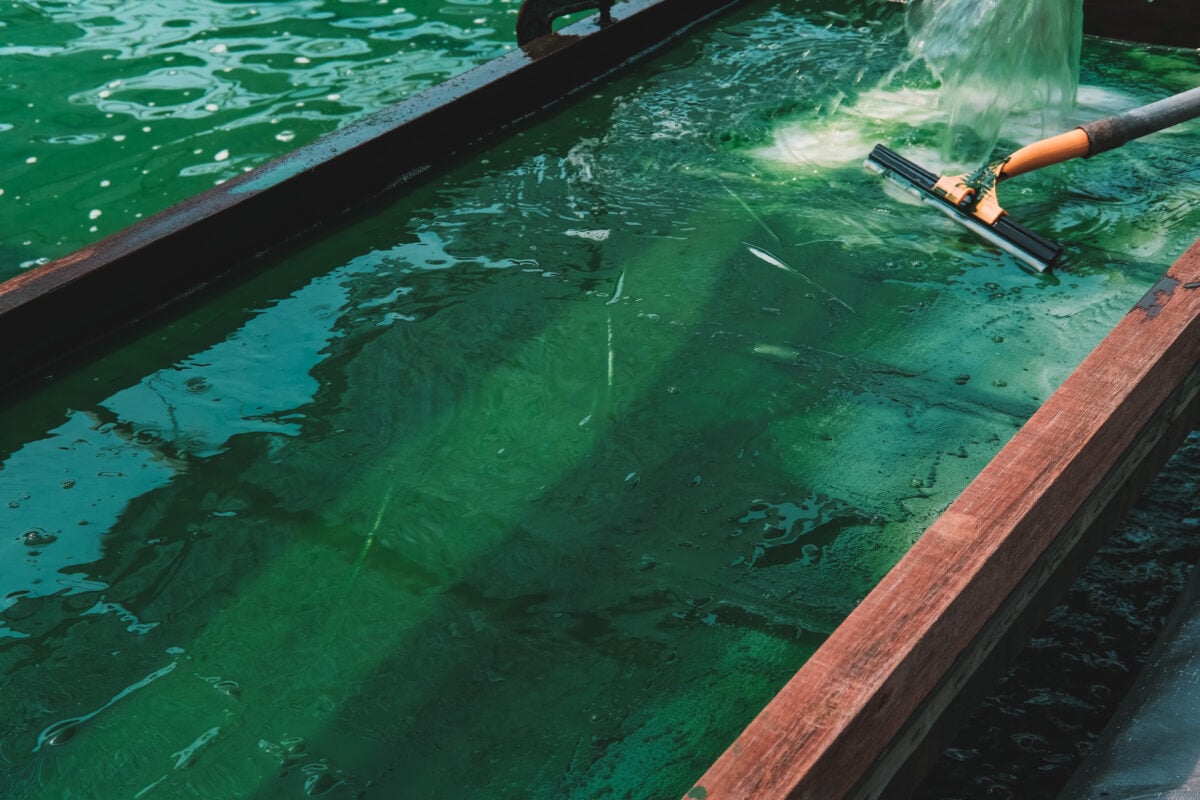
Spirulina first gained popularity in the US when NASA first proposed that the algae could be grown in space for easy consumption by astronauts. Its nutritious, versatile, and thrives even in inhospitable conditions. (In fact, the space agency still uses spirulina as a dietary supplement today for these reasons.)
But while spirulina is primarily sold as a powdered or encapsulated supplement in the UK and US, it can also be prepared and eaten raw, or cooked from frozen.
The flavor of these different forms is hugely variable. Dried and powdered spirulina can have a strong, almost sea-like taste, with earthy tones and a slightly bitter edge. Meanwhile, raw spirulina is sometimes described as creamy and earthy, like spinach.
While many people enjoy powdered spirulina, it can be an acquired taste, and blending it with juices, smoothies, or protein shakes can help moderate the strong flavor. In contrast, raw spirulina is much milder, and is frequently eaten stirred into soups, blended into fresh guacamole, or simply spread onto toast.
“Fresh spirulina should be creamy like a spreadable cheese,” Katie Kohlstedt, the co-founder of a spirulina micro-farm in San Miguel de Allende, Mexico, previously told the BBC. “If you closed your eyes, you might think you were eating a cross between an avocado and spinach.”
Read more: This Start-Up Is Making Iron In Plant-Based Meat Easier To Absorb
Just how nutritious is spirulina?
While its culinary history and flavor are notable, spirulina’s modern success as both a staple ingredient and dietary supplement stems from its nutrient density. According to the U.S. Department of Agriculture, a single teaspoon of dried spirulina contains 1g of protein, 1g of carbohydrate, 1.08mg of iron, and 30mg of potassium.
Jennifer Pallian, a Registered Dietitian (BSc RD), food scientist, and the founder of Foodess, told Plant Based News (PBN) that “by dry weight, spirulina’s protein content is superior to that of common plant sources like soybeans, peanuts, and grains.”
Spirulina is up to 70 percent protein, compared to an average maximum of 26 percent for lean, cooked beef, or around 30 percent for beans and pulses. Furthermore, the quality of spirulina’s protein content is very high, as it includes all essential amino acids.
In addition to this formidable protein content, a single teaspoon of spirulina contains a moderate amount of thiamin, riboflavin, niacin, and copper, as well as a smaller amount of magnesium, manganese, and both omega 6 and omega 3 fatty acids.
A teaspoon of spirulina contains just five calories, no cholesterol, and no sodium (though some commercial products may vary).
‘Spirulina is rich in various pigments’
Pallian atold PBN that there are also various additional benefits from the antioxidants and bioactive compounds present in spirulina. Some research indicates that these compounds can protect human cells and help reduce the risk of developing certain chronic and cardiovascular diseases.
“Spirulina is rich in various pigments,” explained Pallian. “Including chlorophyll a, xanthophyll, beta-carotene, echinenone, myxoxanthophyll, zeaxanthin, canthaxanthin, diatoxanthin, and 3-hydroxyechinenone.”
Each of the pigments listed by Pallian is linked to its own range of potential health benefits. Beta-carotene, for example, is converted into vitamin A within the body, while a 2023 study noted that chlorophylls and their derivatives “exhibit a range of beneficial effects, including antioxidant, antimutagenic, antigenotoxic, anticarcinogenic, and anti-obesogenic properties.”
One shortcoming of conventional spirulina is that it does not contain any bioavailable B12. Instead, it contains “pseudo-B12,” which does not benefit the human body.
However, a recent report suggests that state-of-the-art biotechnology can help cultivate spirulina with comparable levels of B12 to beef. The research has “substantial” ramifications for nutrient deficiencies worldwide, making spirulina an even more accessible and effective supplement.
Is spirulina really that good for you?
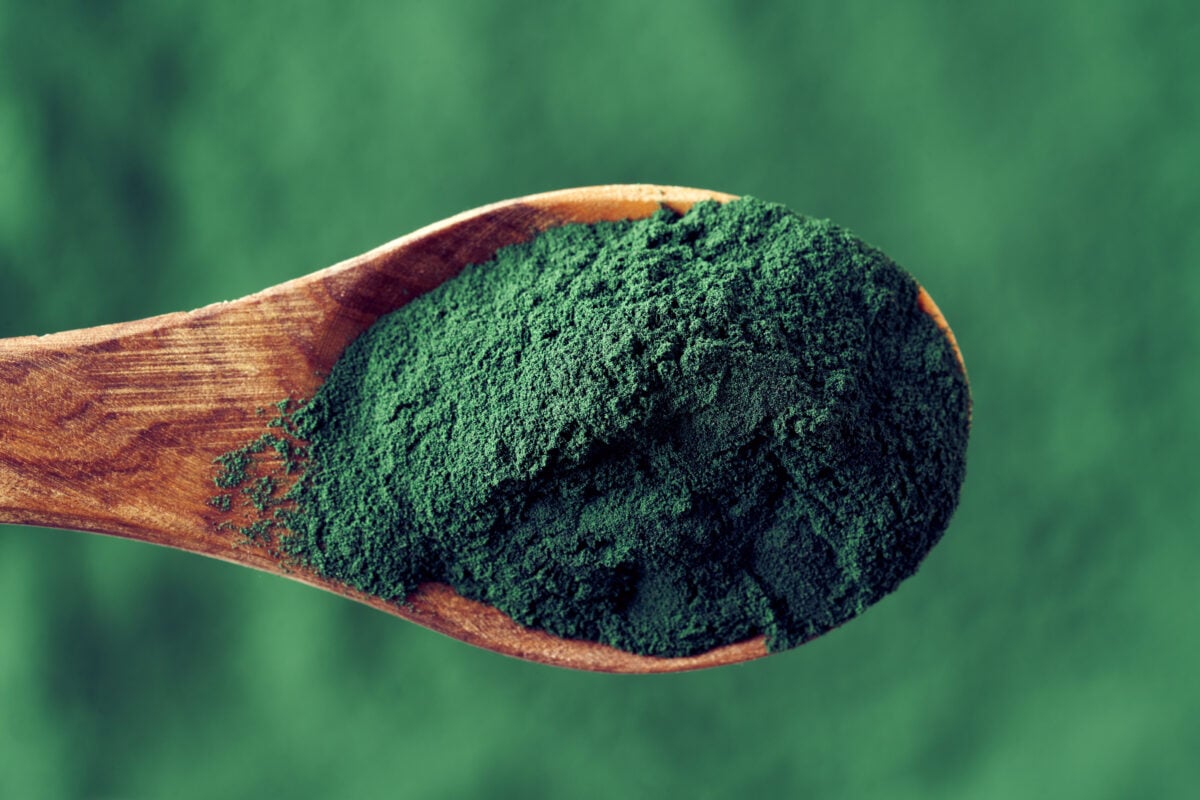
A growing body of evidence links spirulina with myriad benefits and positive health outcomes, including a review from earlier this year which found that the algae could potentially mitigate heart disease and diabetes risk.
The study’s authors noted that spirulina consumption has no health risks, and that several pre-existing reports suggest it can prevent or limit “cardiovascular risk factors such as high blood pressure, hyperglycemia, and hyperlipidemia.”
Pallian told PBN that certain studies show that spirulina’s insulin-sensitizing properties “can also help improve insulin sensitivity and reduce inflammation,” potentially improving short-term glycemic control for diabetic patients for whom this is critical.
Research also links spirulina consumption with the preservation of a healthy gut microbiome and immune function as people age, while other work indicates that it may help reduce both the risk and severity of cancer. Spirulina may also help to lower cholesterol and triglyceride levels, and does protect the body’s fatty structures against oxidative damage – a key driver of certain serious diseases like Alzheimer’s, Parkinson’s, and multiple sclerosis.
“Supplementation with spirulina has also been shown to lower oxidative stress markers, indicative of reduced inflammation and better metabolic health,” said Pallian.
She added that spirulina contains the phycobiliproteins C-phycocyanin and allophycocyanin, which some research indicates may have further antioxidant, anticancer, antimicrobial, and anti-inflammatory benefits.
More research into spirulina’s health benefits is needed
Despite the various proven and theorized benefits, it should be noted that many of the scientists researching spirulina mention how further investigations should be carried out to confirm the ingredients’ links to positive health outcomes.
“What the literature suggests is that Spirulina is a safe food supplement without significant side effects,” said Professor Petros Karkos, lead study author for Spirulina in Clinical Practice: Evidence-Based Human Applications, published by the National Institute of Health (NIH). “But its role as a drug remains to be seen.”
Regardless, spirulina has an undeniably rich culinary history, unique earthy flavor, and bountiful nutrients. It’s also cost-effective, relatively accessible, extremely sustainable, and versatile. If you can’t find fresh spirulina in stores, encapsulated and powdered versions are easy to find online and in person, and the latter can easily be incorporated into your favorite go-to meals and snacks.
“Some easy ways to incorporate spirulina include adding it to smoothies, yogurt, or oatmeal, or taking it in supplement form,” said Pallian.
You also should always consult a healthcare professional before fortifying your diet with spirulina – or any supplement – and certain blood-pressure-lowering, immunosuppressant, and cholesterol-lowering medications reportedly interact with the algae, per Healthline.
Pallian noted that spirulina is recognized as safe by the FDA, but potential side effects include digestive issues, edema, headaches, muscle pain, facial flushing, and sweating. She added that “no specific data” is currently available on spirulina and breastfeeding.
Read more: What Plant-Based Foods Are ‘Complete’ Protein Sources?
